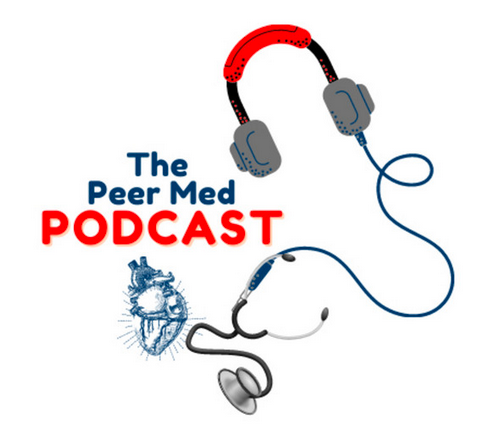Doctors are men who prescribe medicines of which they know little, to cure diseases of which they know less, in human beings of whom they know nothing.” – Voltaire
The covid-19 pandemic has claimed millions of lives, shut down economies, restricted movement and stretched our healthcare systems to the edge; but despite this time of destruction, Peer Med, a podcast dedicated to serving humanity was born! Established as a platform for creation, innovation and above all a platform for unity.
A student-led initiative of the Peer Medical Foundation, the Peer Med podcast intertwines medicine, an ever changing science of diagnosis and treatment, with conversations about issues in healthcare where lives are on the line. Due to the fashionable focus of medical education on biology, pathology and disease there has been a reduced emphasis on the social determinants of health. As such physicians lack an empathetic character understanding the human aspect of medicine and in this, fail to communicate effectively rendering patients dissatisfied with care.
Seeing the need for more fruitful discussions, the Peer Med Podcast provides listeners with a more nuanced interpretation encouraging health professionals to look beyond medicine and into the experiences, values and beliefs of patients to assure a successful therapeutic relationship. It serves as a reminder of the importance of self-determination, beneficence, non-maleficence and justice as medicine naturally exposes health professionals to the darker side of human existence. The podcast explores these themes by delving into the underbelly of life where homelessness, drug addiction, abuse, trauma, and death are brought to the surface of conversations. It takes the already prevalent cases of strokes, pneumonia, heart attacks, fractures, and miscarriages from the everyday scenarios in emergency rooms plaguing our species and encourages a more humane outlook amidst all conflict and chaos.
“Doctors are men who prescribe medicines of which they know little, to cure diseases of which they know less, in human beings of whom they know nothing.”
– Voltaire
Founded on March 24th at the start of the COVID-19 pandemic, Peer Med is dedicated to humanity and the millions of people worldwide without access to education, health and water, sanitation and hygiene (WASH) services. The podcast aims to inspire, engage and promote action to solve challenges in global health, human rights and medicine. Acknowledging that the delivery of healthcare requires a team effort, the podcast invites everyone from clinicians, advocates, economists and even comedians to delve into the subjects of medicine. While peer-reviewed information is important, not all valuable work belongs in an academic journal. In order to strengthen health systems a multidisciplinary set of perspectives is required to teach and inspire people. Therefore, Peer Med encourages dialogue so that all listeners may raise their voices advocating for humanity.
Ensuring Peer Med is truly a global podcast is the goal but despite the best intentions to ensure inclusivity, barriers in terms of gender, language, and access prevent this from happening. To tackle the problem, Peer Med aspires to invite speakers from all corners of the world, not only to assure equitable representation but to also gain advice on how to empower those in low-and-middle-income-countries (LMIC) so that their voices may be heard. In serving humanity, Peer Med is completely free and available on a variety of platforms aiming to leave listeners refreshed, empowered and motivated to effect change. These can be heard from a mobile phone, shared via social media, or played for a friend. The conversations will leave listeners burning with a flame in their hearts to do their utmost on life’s quest to serve humanity.
It serves as a reminder of the importance of self-determination, beneficence, non-maleficence and justice as medicine naturally exposes health professionals to the darker side of human existence. The podcast explores these themes by delving into the underbelly of life where homelessness, drug addiction, abuse, trauma, and death are brought to the surface of conversations. It takes the already prevalent cases of strokes, pneumonia, heart attacks, fractures, and miscarriages from the everyday scenarios in emergency rooms plaguing our species and encourages a more humane outlook amidst all conflict and chaos.
Leah Sarah Peer
The support for the podcast has been humbling as love has poured in from around the globe. So many are keen on sharing their stories and this speaks volumes to the passion of the podcasts’ guests, their enthusiasm and commitment to mankind. Some have included a world renowned speaker and human rights champion, a Brooklyn-based singer, songwriter, teacher and PhD candidate in Comparative Literature, a range of student initiatives – Meet the Need Montreal, Helping Hands, to Non-profit Organizations such as Med Supply Drive and so many more.

If there is something the COVID-19 pandemic has taught us, it’s the power of community and compassionate care’s strength in uniting us across the world. Peer Med hopes to serve as a medium for inspiration, for reflection, and invites people from across the healthcare spectrum to come together committed and dedicated to serve humanity.
To listen to Peer Med, visit Spotify, Apple Podcasts. To read about the individual episodes visit the website for more.


